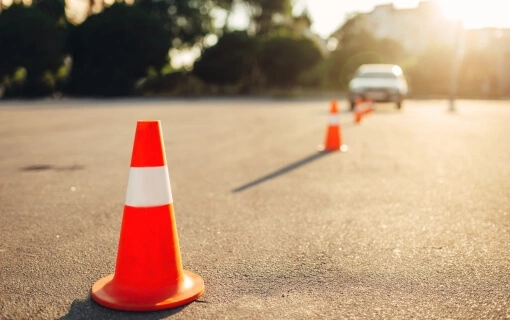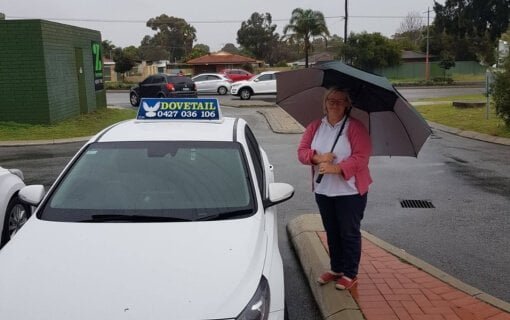
II. Factors Affecting the Number Of Driving Lessons Needed
A. Individual Learning Style And Aptitude
B. Prior Experience With Driving
C. Age And Maturity Level
D. Availability Of Practice Opportunities
E. Local Traffic Conditions And Road Infrastructure
F. Budget And Time Constraints
III. Understanding The Basics: Preparing For The First Lesson
A. Familiarizing With The Vehicle Controls
B. Understanding Traffic Rules And Regulations
C. Developing The Right Mindset For Safe Driving
IV. Beginner Driving Lessons: What To Expect
A. Overview Of A Typical Driving Lesson
B. Learning To Start, Stop, And Steer The Vehicle
C. Practising Basic Maneuvers, Such As Changing Lanes And Turning
V. Developing Defensive Driving Skills:
A. Navigating Different Road Types And Traffic Conditions
B. Practising Emergency Maneuvers:
C. Gaining Confidence And Experience:
D. Practising In Different Weather Conditions:
VI. Final Stages Of Learning: Advanced Driving Lessons
A. Reviewing And Reflecting On Your Progress
B. Finalizing Your Readiness For The Driving Test
C. Understanding The Importance Of Ongoing Learning And Improvement
VII. Additional Considerations For Beginners
A. Importance Of Regular Practice Outside Of Driving Lessons
B. Seeking Feedback From Experienced Drivers
C. Managing Driving-Related Stress And Anxiety
D. Understanding The Responsibilities And Risks Of Driving
VIII. Conclusion
A. Recap Of The Key Points
B. The True Number Of Driving Lessons Needed To Master The Skill
C. Final Thoughts On The Journey Of Learning To Drive
Introduction
Learning to drive is a significant milestone in many people’s lives. It offers newfound freedom and independence but also comes with its fair share of challenges, especially for beginners. One crucial aspect of the learning process is taking driving lessons, which can provide beginners with the necessary knowledge and skills to become safe and confident drivers. But how many driving lessons does a beginner need? In this comprehensive guide, we will explore the factors that affect the number of driving lessons required, what to expect during different stages of the learning process and additional considerations for beginners.
Factors Affecting The Number Of Driving Lessons Needed
Individual Learning Style And Aptitude
Everyone learns at their own pace, and the number of driving lessons needed can vary depending on an individual’s learning style and aptitude. Some people may pick up driving skills quickly, while others require more time and practice. It’s essential to be patient with yourself and trust the learning process.
Prior Experience With Driving
If you have prior experience with driving, such as riding a motorcycle or operating farm machinery, you may have a foundation that can shorten the learning curve. However, it’s still important to undergo proper driving lessons to learn the rules and techniques of road driving.
Age And Maturity Level
Age and maturity level can also impact the number of driving lessons needed. Younger beginners may require more time to develop the necessary cognitive and motor skills for driving. In comparison, older beginners may have more life experience but may need additional practice to adapt to the physical demands of driving. It’s essential to consider individual readiness and maturity when determining the number of driving lessons needed.
Availability Of Practice Opportunities
 The availability of practice opportunities outside of driving lessons can also affect the number of lessons needed. Regular practice in different driving situations, such as different road types, traffic conditions, and weather conditions, can help build skills and confidence more quickly. Lack of practice opportunities may require more lessons to compensate for the limited practice time.
The availability of practice opportunities outside of driving lessons can also affect the number of lessons needed. Regular practice in different driving situations, such as different road types, traffic conditions, and weather conditions, can help build skills and confidence more quickly. Lack of practice opportunities may require more lessons to compensate for the limited practice time.
Local Traffic Conditions And Road Infrastructure
The local area’s traffic conditions and road infrastructure can impact the number of driving lessons needed. If the area has complex road systems, heavy traffic, or challenging driving conditions, it may require more lessons to navigate these situations safely. On the other hand, if the area has simpler roads and lighter traffic, fewer lessons may be needed.
Budget And Time Constraints
Budget and time constraints are also factors to consider. Driving lessons can be costly, and beginners may have budget limitations that can impact the number of lessons they can afford. Similarly, time constraints, such as work or school commitments, can affect the frequency and duration of driving lessons. It’s essential to balance budget and time to ensure a reasonable number of classes for effective learning.
Understanding The Basics: Preparing For The First Lesson
 Before starting driving lessons, you must familiarize yourself with the basics of driving. This preparation can help you make the most out of your lessons and build a strong foundation for safe driving.
Before starting driving lessons, you must familiarize yourself with the basics of driving. This preparation can help you make the most out of your lessons and build a strong foundation for safe driving.
Familiarizing With The Vehicle Controls
Before stepping into a vehicle, take the time to familiarize yourself with the controls. Understand how the accelerator, brake, clutch (if applicable), gears (if applicable), steering wheel, and other controls work. Knowing the basics of vehicle controls can help you feel more confident and comfortable during your first driving lesson.
Understanding Traffic Rules And Regulations
Familiarize yourself with the traffic rules and regulations of your local area. Study the road signs, speed limits, right-of-way rules, and other traffic laws. Knowing and understanding these rules will be essential for safe and legal driving. You can find resources such as driver’s handbooks and online tutorials or seek guidance from a qualified driving instructor.
Developing The Right Mindset For Safe Driving
Before starting your driving lessons, developing the right mindset for safe driving is crucial. Understand the importance of following traffic rules, practising defensive driving, and being aware of your surroundings at all times. Stay focused, calm, and alert during your lessons, and be open to feedback and guidance from your instructor.
Beginner Driving Lessons: What To Expect
Driving lessons for beginners typically start with the basics and gradually progress to more advanced maneuvers. Knowing what to expect during your driving lessons can help you prepare mentally and make the most of your learning experience.
Overview Of A Typical Driving Lesson
A typical driving lesson for beginners usually starts with a brief review of vehicle controls and traffic rules. Then, you will practice starting and stopping the vehicle, steering, and basic maneuvers, such as changing lanes and turning. Your instructor will provide guidance and feedback to help you improve your skills.
Learning To Start, Stop, And Steer The Vehicle
 The essential maneuvers that lay the groundwork for safe and smooth driving are starting, stopping, and steering the vehicle.
The essential maneuvers that lay the groundwork for safe and smooth driving are starting, stopping, and steering the vehicle.
Starting the vehicle involves familiarizing oneself with the ignition system, such as turning the key or pressing the start button. It also includes understanding the dashboard indicators, such as fuel gauge and engine temperature, to ensure the vehicle is in optimal condition.
Stopping the vehicle is equally crucial, and beginners need to learn how to apply the brakes gradually and smoothly, rather than abruptly, to avoid skidding or sudden jolts. Additionally, understanding the proper hand positioning on the steering wheel and using the mirrors effectively for situational awareness is vital for safe driving.
Steering the vehicle involves using the hands to control the car’s direction. Beginners should be mindful of the position of their hands on the wheel, the smoothness of the turns, and the coordination between steering and speed control.
Practising Basic Maneuvers, Such As Changing Lanes And Turning
Once you have mastered the basic vehicle controls, you will practice basic maneuvers such as changing lanes, turning, and parking. You will learn to signal correctly, check your blind spots, use mirrors effectively, and maintain a safe following distance. Your instructor will teach you the correct techniques for these maneuvers and provide feedback to help you improve your skills and build confidence behind the wheel.
Developing Defensive Driving Skills
Defensive driving is an essential aspect of safe driving. During your beginner driving lessons, you will learn how to anticipate potential hazards, identify risks, and make decisions to avoid accidents. You will practice techniques such as scanning the road ahead, checking for potential hazards, and maintaining a safe speed and distance from other vehicles. Your defensive driving school instructor will emphasize the importance of defensive driving and help you develop these skills to become a safe and responsible driver.
Navigating Different Road Types and Traffic Conditions
As you progress in your driving lessons, you will practice driving in different road types and traffic conditions. This may include driving on residential streets, main roads, and freeways and navigating traffic situations such as heavy traffic, intersections, roundabouts, and complex road systems. Your instructor will guide you through these situations and provide tips on handling them safely and confidently.
Practising Emergency Maneuvers
Another critical aspect of beginner driving lessons is practising emergency maneuvers. You will learn to respond to unexpected situations, such as sudden stops, swerving to avoid obstacles, and dealing with skids. Your instructor will teach you the correct techniques for these maneuvers and provide opportunities to practice them in a controlled environment. Building these skills will help you stay calm and react effectively in real-life driving situations.
Gaining Confidence And Experience
 As you gain experience and confidence behind the wheel, your instructor will gradually introduce more complex driving tasks and maneuvers. This may include merging onto highways, navigating heavy traffic, and parking in tight spaces. Your instructor will provide guidance and support as you tackle these challenges and gradually reduce their intervention to allow you to develop independent driving skills.
As you gain experience and confidence behind the wheel, your instructor will gradually introduce more complex driving tasks and maneuvers. This may include merging onto highways, navigating heavy traffic, and parking in tight spaces. Your instructor will provide guidance and support as you tackle these challenges and gradually reduce their intervention to allow you to develop independent driving skills.
Practising In Different Weather Conditions
Driving in different weather conditions can present unique challenges, and being prepared for them is essential. Your driving lessons may include practising driving in the rain, fog, snow, or other adverse weather conditions. Your instructor will teach you how to adjust your driving techniques and adapt to changing weather conditions to ensure safe and responsible driving.
Final Stages Of Learning: Advanced Driving Lessons
Reviewing And Reflecting On Your Progress
Throughout your beginner driving lessons, your instructor will provide feedback on your progress and areas that need improvement. It’s important to take time to reflect on your performance, review the feedback, and work on addressing any weaknesses. Regular review and reflection will help you build on your strengths and improve your skills more effectively.
Finalizing Your Readiness For The Driving Test
Once you have completed the recommended number of driving lessons and your instructor believes you are ready, you can start preparing for your driving test. This may involve additional practice sessions, mock tests, and focusing on areas that need improvement. Your instructor will provide guidance and support to help you prepare for the driving test with confidence.
Understanding The Importance Of Ongoing Learning And Improvement
As a novice driver, embarking on your beginner’s driving lessons is the first step on a long road to mastery. But the journey doesn’t end there. To truly excel behind the wheel, continuous learning and improvement are crucial. By honing your skills through practice and seeking professional guidance, you can enhance your driving prowess and ensure safety on the road. Embrace the challenge of ongoing education, embrace the thrill of self-improvement, and embrace the responsibility of driving confidently. Drive on, and drive smart.
Additional Considerations For Beginners
As a new driver, there are key aspects to consider beyond the basics of driving lessons. To truly excel on the road and become a skilled driver, it’s vital to embrace ongoing learning and improvement. Here are some additional considerations to keep in mind:
Importance Of Regular Practice Outside Of Driving Lessons
 While formal driving lessons provide a solid foundation, regular practice outside of lessons is crucial for building confidence and muscle memory. Spend time behind the wheel in different driving conditions, such as highways, parking lots, and residential areas, to hone your skills and gain experience.
While formal driving lessons provide a solid foundation, regular practice outside of lessons is crucial for building confidence and muscle memory. Spend time behind the wheel in different driving conditions, such as highways, parking lots, and residential areas, to hone your skills and gain experience.
Seeking Feedback From Experienced Drivers
Feedback from experienced drivers, such as parents, mentors, or professional instructors, can provide valuable insights into your driving performance. Hence, be open to constructive criticism and use it as an opportunity to identify areas for improvement.
Managing Driving-Related Stress And Anxiety
Driving can be stressful, especially for beginner drivers. It’s important to recognize and manage driving-related stress and anxiety through techniques such as deep breathing, visualization, or listening to calming music. Remember to stay focused and composed while driving to ensure safety on the road.
Understanding The Responsibilities And Risks Of Driving
As a driver, you have a responsibility not only to yourself but also to other road users. It’s crucial to understand the risks and consequences of driving, such as obeying traffic laws, avoiding distractions, and never driving under the influence of alcohol or drugs.
Conclusion
Recap Of The Key Points
Learning to drive as a beginner requires patience, practice, and guidance from a qualified driving instructor. The number of driving lessons needed can vary depending on factors such as individual learning pace, prior experience, practice opportunities, local traffic conditions, budget, and time constraints. Building a solid foundation of safe driving skills is essential, gradually progressing to more advanced maneuvers and gaining confidence and experience behind the wheel. Regular review and reflection on your progress, along with guidance from your instructor, will help you become a responsible and competent driver. Remember, safe driving is a lifelong skill that requires continuous learning and practice to ensure the safety of yourself and others on the road. Following a structured beginner driving lesson plan and working with a qualified driving instructor can build a solid foundation for a lifetime of safe and responsible driving.
The True Number Of Driving Lessons Needed To Master The Skill
In conclusion, the number of driving lessons needed for a beginner can vary depending on various factors. Working with a qualified driving instructor who can assess your progress and provide tailored lessons to meet your specific needs is best. Focus on developing safe driving skills, gaining confidence and experience, and being patient with yourself throughout the learning process. Remember, safe driving is a lifelong skill that requires continuous learning and practice to ensure the safety of yourself and others on the road. So buckle up, follow the rules of the road, and enjoy the journey of becoming a skilled and responsible driver!
Final Thoughts On The Journey Of Learning To Drive
In conclusion, becoming a skilled driver goes beyond just taking driving lessons. Regular practice, seeking feedback, managing stress, and understanding responsibilities are vital considerations for beginner drivers. Embrace the journey of continuous learning and improvement to become a safe and confident driver on the road. Lisa Archer of Dovetail Driving School is your first step in that direction.


Recent Comments